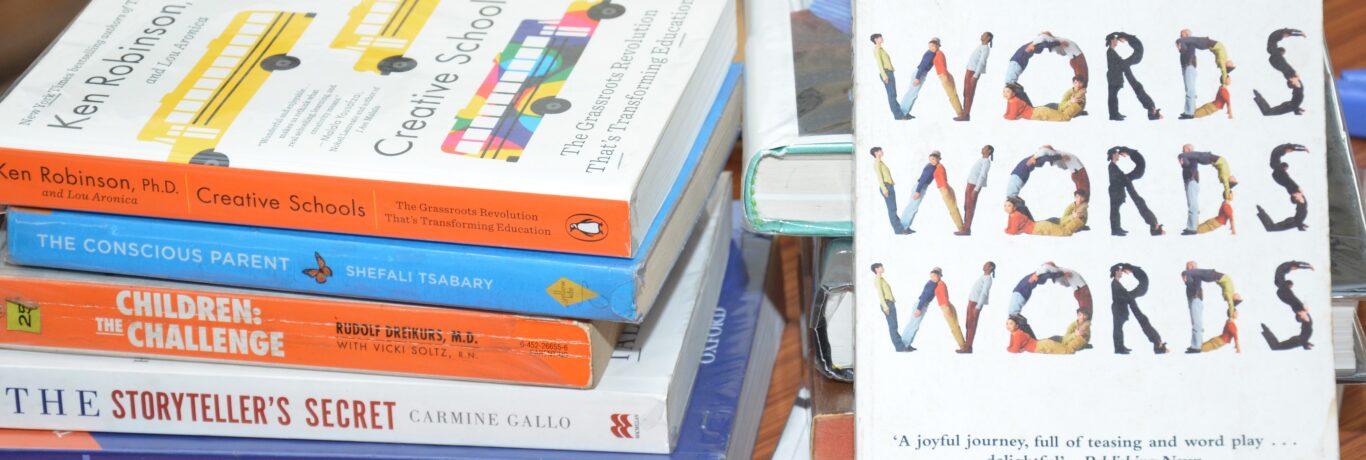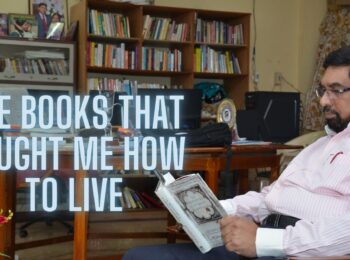(Srinivas grew up in the shadows of unsupportive parents. We could see him as a typical case study of the damaging outcomes of irresponsible parenting.)
I’m preparing for the day’s work in my school office, and from outside the door, I could listen to hundreds of tip-tap of shoes, muffled laughter, fearful whispers. It’s an enjoyable commotion where I catch the familiar din flowing along the corridors and a few minutes later suddenly stilled as children settle into the classrooms.
I get busy with my work, and a few minutes later, I raise my eyes, and through the glass doors, I see a lady and a young boy waiting, perhaps to meet me.
I called them in, expecting to hear a usual babble of complaints.
As they entered, I stare at them with disbelief at their state of dress; it’s outrageous for both to visit the school office in such an awkward manner. Their hair in disarray faces puffed up, stained with marks of tears, tired eyes all showing they have not slept for many days. They stood before me; weak, sick, and fearing as though they have just walked out of a prison cell.
‘My son failed in the exams’ the mother almost swallowed her words looking at the young boy who, three months ago, completed the marathon final exams and was eager to get his happy life of freedom back.
‘What?’ not believing to grasp the sheer improbability of the words uttered, I raised my voice a little, and in the next instance, I gave them derisive look.
I have my reasons for such a scornful attitude I have displayed.
Srinivas was a playful and active student in the class of forty. Most teachers appreciate the way he asks questions and seen blessed with an approach to good discipline and humility. His keen interest in extra-curricular activities and self-confident character marked him as a sure academic success in his final exams.
But Srinivas grew up fenced in by unsupportive parents; we find no common ground that can comfortably connect what the parents expect, what the boy is capable of, and the vast creative resources the school community contributes. He could indeed become a typical case study of the harmful outcomes of bad parenting. The emotional damage it could wreak on a boy’s susceptible psyche when over-ambitious parents, who at any cost, want to realize ‘their dreams’ through them without grasping how much of pressure the boy is undergoing and the stress he endures to reach up to the unrelenting parental expectations. Sure the boy runs a distressing struggle.
There have been some evident changes when Srinivas entered the final year in the school. He moved around subdued, silent, and lazy and seemed reluctant to manifest what he has been all the previous years – spirited and bustling with intelligent energy.
‘His parents seem to trouble him a lot, as the exams are not too far away,’ I shared an opinion with his class teacher when she reported he seems not up to the mark in the preparatory exams.
A week later, I encountered his mother waiting for me.
‘We have decided to coach him at home, plan his preparation, revision tests at home for the next six months,’ hearing the reasons she has proposed ‘the stupidest and damaging decision I have ever heard,’ I said to myself inside.
“Classrooms are too noisy for preparation; there is an upcoming annual event and may divert his attention, he requires some alone time for preparation, I can guide him throughout the day and evening, and further commute to the school and back home is eating away his study available time.” She listed a few of her suspicions.
I couldn’t make out how to classify this irrational prattle of an overbearing and hovering mother when referring to the school as academically uncongenial for exam-preparation and extra-curricular activities hindered the boy’s progress.
It’s impossible to assume what type of parent would bluntly hint at his child, “We have big ambitions about you and your future and success. It’s your responsibility to fulfill it, no matter what”.
I sympathized with the boy who stood reduced to a puppet powerlessly dangling by the strings of the parent’s ambitions. Holding his tears, I find him bent like a bow, head drooped, and unable to see my face as he tried defeatedly to put up with his irrational mother.
The mother seems to be hopelessly adamant brushing off the reasons I offered that, ‘classrooms are best places to study, and home can never be a classroom,’ but she stuck to her dumb proposal.
Here I see an all-powerful parent sitting across my table making all the judgments, making new rules of study, giving an indelible hint to his son making him feel, “You are inadequate, worthless, I have no confidence in you,” and the seed of fear, the seed of inferiority, dependability, and guilt finds deeply and mindlessly sown into the boy.
Srinivas has no say but to obey sheepishly the adamant stand held by his parents, unmindful and too innocent to figure out how this impacts and damages his ability to set a standard for his future endeavors.
I tried to intervene on behalf of Srinivas. Still, the mother doggedly pursued her case to keep away from school schedules for exam preparation. And keep him isolated at home, according to her wisdom, ‘My son can do well in exams under my supervision,’ and I’ll give the best for my son.
For seven months, I heard nothing from Srinivas, not seen on the campus. Even we wouldn’t get time to relax during the hectic examination days where classrooms go on unusually hushed. Still, we could hear a chorus of slow rhythmic renditions by students seen intently bent over the dog-eared textbooks, or lost entirely in the disintegrated notes sitting in their laps.
I felt as though something went badly wrong in my school procedures. When I saw both mother and Srinivas in such a pathetic profile, their heads hung low that they might have regarded standing before me more humiliating than the fact that he had miserably failed in the final exams.
What a fall. He is such a promising young student. All his efforts ruined for only one reason: the glorious arrogance of his parents. He didn’t fail, but let me emotionally put it like this, ‘his parents failed him,’ by undermining his ability, his self-estimate, and further rejected the school system where children confront hundreds of opportunities to find their strengths and together test their weaknesses.
I couldn’t look at the vulnerable pained face of Srinivas. Seeing his esteem, and his self-concept remained disabled and irreparably crushed in the hands of his parents, throwing him into chaos, which he finds hard to explain to himself, ‘why I’m standing here to melt in distress.’ Standing there, he gets a feeling that something is exploding within him, that his young mind doesn’t seem to comprehend what it was and how to endure it. And not sure how long it churns up there to singe him with the humiliating feeling of failure.
Srinivas story is not unusual. I have seen thousands of children in my twenty years as a teacher, guide, and counselor. A solid majority of them suffered damaged sense of self-worth, poorly fared in academics, and later in their professions because of parents’ overprotection and blindly imposing their will on their children. As a result, I find many premature children growing up with battered self-image and bruised confidence levels.
One valuable advice to the parents:
Well before the youngster is pressurized to achieve at extraordinary levels, there are three vitamins the children need to be feasted with, and they go like this: Encouragement, Recognition, and Acceptance.
Most importantly, a child who grows on as an unconditional recipient of the three vital vitamins from his parents mostly in all likelihood withstands all pressures to achieve well as a youngster but also grows up with a kind of emotional security that will help him mature as a successful adult. In short, the more pressure upon the child, the less he displays an interest in his studies and his self-estimate. Instead of rushing him into an artificial rosy world of illusions for which he may not see himself as ready for such attempts, we could encounter a possibility that it might boomerang with mighty psychological fallouts. I advise parents to give children freedom and time to develop according to their own pace and abilities. We must use our empathic wisdom to see a child in his own right rather than as an extension of our unfulfilled desires and to use them for our own satisfaction.






